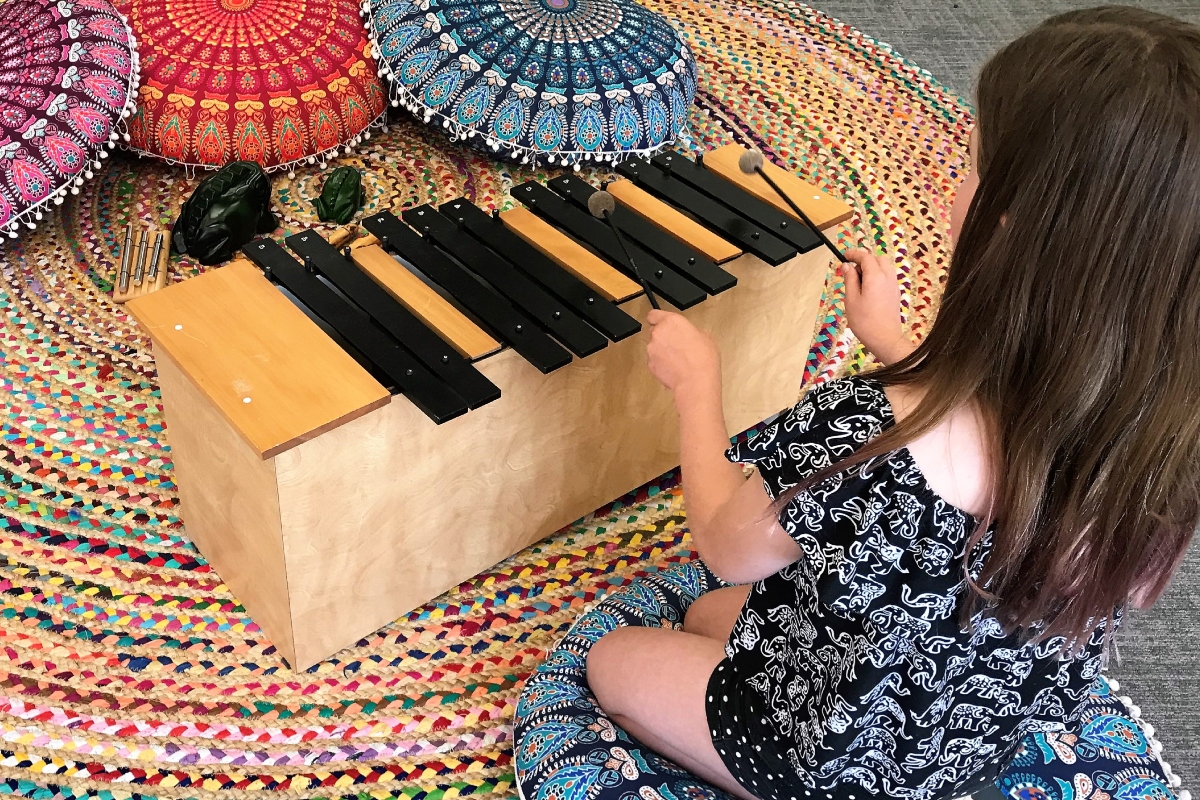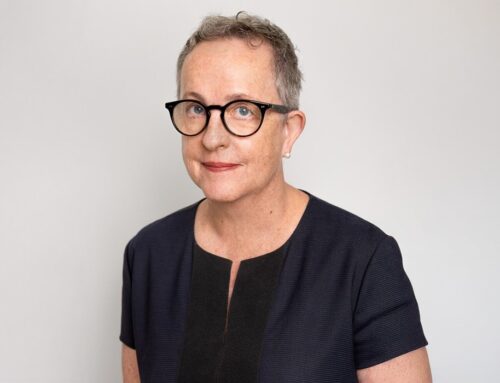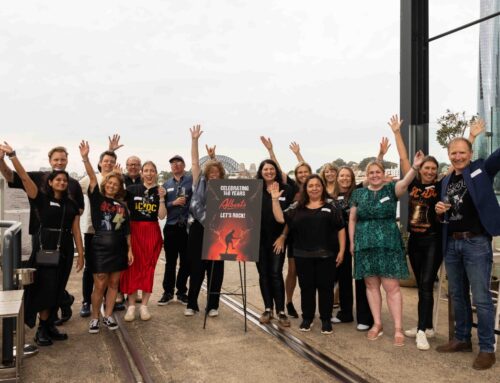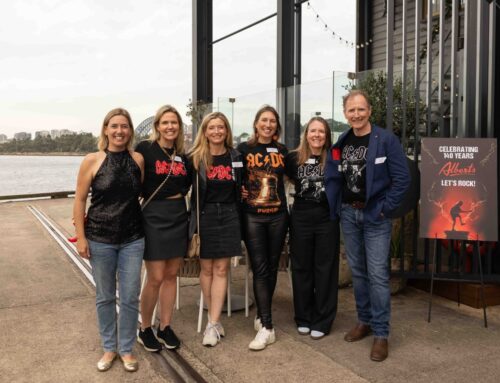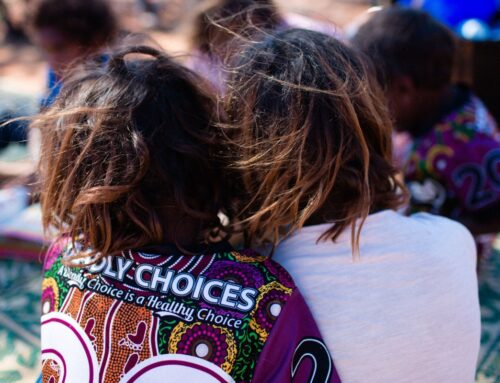In early 2024, Rebecca van Herk was visiting the NSW Northern Rivers town of Nimbin, two years after the unprecedented floods that devastated the local community and many surrounding areas. The psychologist was sitting in a classroom with 30-odd teachers, chatting about their mental health and inquiring about the ongoing impact the traumatic event may still be having.
“They all said, ‘We look after ourselves and have done lots of training, we’re really aware of it’,” Rebecca says. “Then it started to rain and the whole room stopped. Nobody talked and everybody started to breathe really fast and had that hypervigilant look. I said, ‘What I’ve just noticed is that just hearing rain on the roof has deregulated all of you,’ and they said, ‘no it hasn’t,’ but as an observer, it had. And until we recognise what that distress does then we [can’t support] children or communities.”
Rebecca was working with the children, teachers and parents of the Northern Rivers in her role as a senior trauma consultant and practice coach with the children’s mental health charity KidsXpress. It is the second time she and KidsXpress have worked with communities affected by natural disasters, having travelled to the southern NSW Snowy Valleys region following the 2019-20 Black Summer bushfires that caused unprecedented destruction.
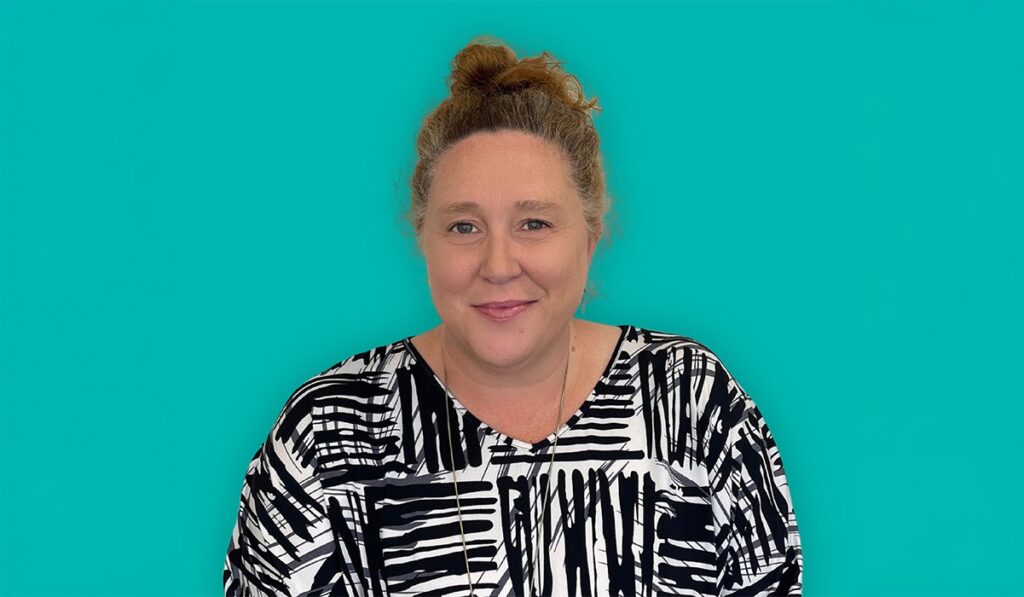
“It’s about giving children [the ability] to talk about things that are scary,” says Rebecca van Herk of her work for KidsXpress.
These programs were both funded by The Tony Foundation, a regular supporter of KidsXpress since 2017, but here providing one-off ‘responsive’ grants acknowledging the ongoing need among these affected communities. In each, the work has proved so profound it has resulted in additional funding: a substantial $1.6 million federal government grant to continue working in the Snowy Rivers; and two more modest but still impactful philanthropic grants to enable ongoing work in the Northern Rivers.
Founded in 2005, KidsXpress combines psychology and the creative process (music, art, play and dance movement) through Expressive Therapy and Education to promote emotional growth and healing in children suffering trauma. The evidence-based program is accredited through the Australian Institute of Family Studies and is delivered to multiple schools across NSW, at KidsXpress’ Macquarie Park and Tumut centres, and includes trauma-informed training for professionals and parents.
Rebecca was brought on to begin working with KidsXpress in early 2022 by founder and CEO Margo Ward. She specialises in childcare, child protection and out-of-home care for children, families (including Indigenous families) and adolescents, and children suffering complex traumas impacting on their health and wellbeing. She is also an accredited foster care assessor and trainer.
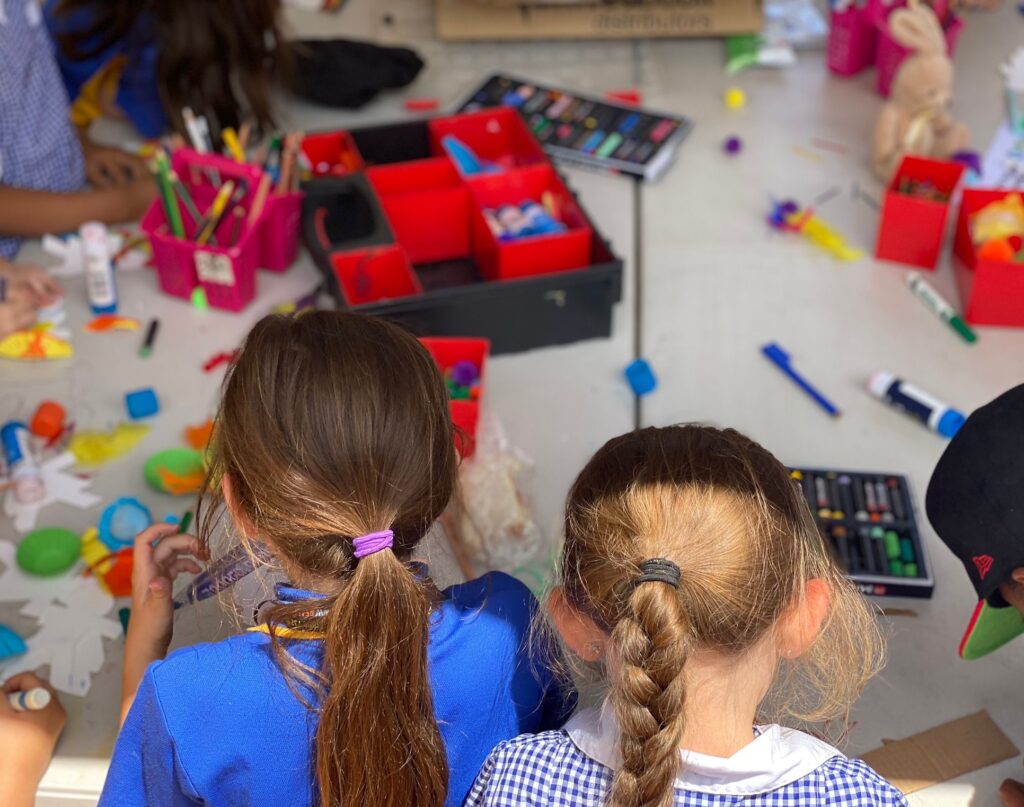
“Through expressive therapy and education, KidsXpress helps children process trauma and build resilience.”
Her work with KidsXpress began following the organisation’s initial fieldwork among the communities in the Snowy Valleys to gauge interest in and capacity for working with KidsXpress’s trauma-informed consultants. Many were still so impacted they were unable to open up.
“They had triage support in those early months, but we wanted to work in the space of post-trauma, which is 18 months to three years after significant events when the community and people start to unravel. Government and crisis funding is available directly after a natural disaster or crisis event and is well utilised by the community and the services that support that community. In order for long term recovery and healing, funding is needed for many years … which is often not the case,” Rebecca says.
“Humans are very good in crises but when the pain and sorrow and grief comes in, that’s when the hard work begins,” she says. “You need leaders in those communities who are vulnerable enough to show when they’re cracking, because every community wants to look like they’re doing well, spending the [funding] well and are over the [crisis].”
Rebecca’s work with children begins with expressive resources – typically whatever she has to hand, be it a basketball, some music, a sandpit or perhaps a toy dinosaur, allowing her to observe the child’s movement and behaviour and whether it changes as they talk.
“It’s about giving children [the ability] to talk about things that are scary. I don’t often offer solutions, if you give people a bit of time and a bit of quiet, they’ll often come up with their own, so then the agency is with them rather than an organisation coming in and telling them they can make it all better. Because you don’t know what better looks like. For places like Tumut and the Northern Rivers it’s things like ‘how do I talk with the kids about all our animals that died?’ They don’t want to talk about the bushfires; they need to talk about the fact they lost one of the most important things [in their life]: their horse.”
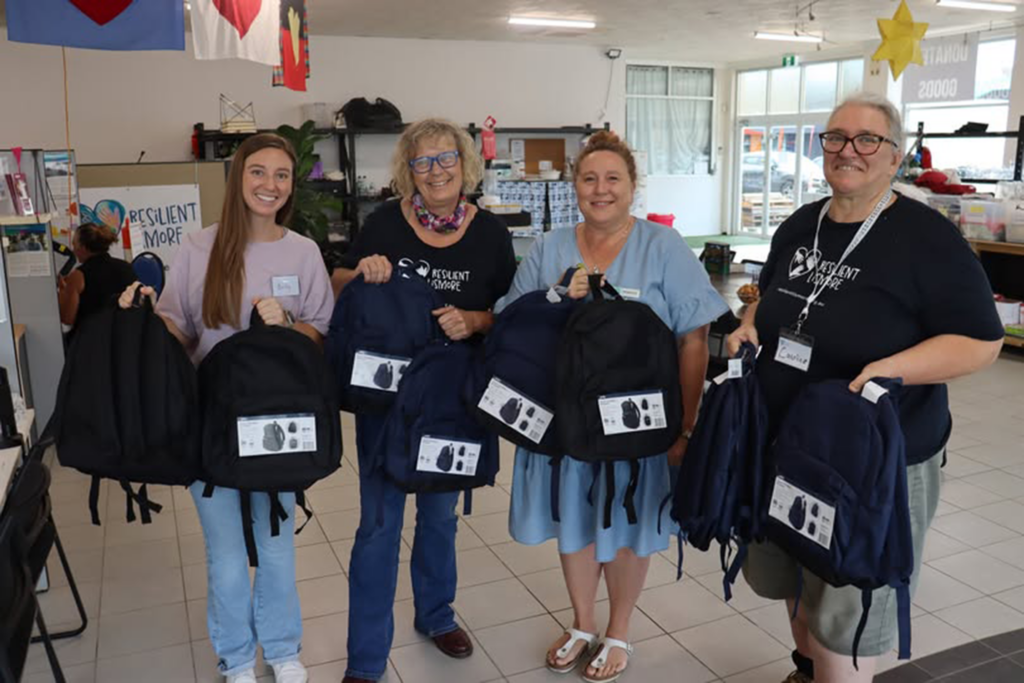
On the frontline: Rebecca (second from right) distributing school bags to flood-affected children in Lismore, NSW.
Much of Rebecca’s work is gaining trust, listening, and acknowledging.
“We throw money and services [at these communities] and yes that helps get their heads above water in order to breathe but the real stuff is sitting there saying, ‘Let’s have a look what it did to you, what it does to you, and you don’t have to get over it, you don’t have to get through it, let’s just acknowledge it .. and how it may have changed your whole sense of self and resilience.”
Rebecca and the KidsXpress team’s work is so in demand they’re unable to personally meet all the requests but have been able to offer online teacher workshops that have proved effective. The initial six-month program delivery in the Northern Rivers reached 268 adults and 480 children across schools and community groups; while the recent grant will fund Rebecca’s return in October to work with more schools.
“Humans want three things,” Rebecca explains. “They want to matter, they want to be valued, and they want to be worthy of whatever you give them. If they get a message that they’re not worthy, they’re not valuable and they don’t matter, it doesn’t matter what you do, you’ll never change that. So our job is to work on children’s and adults’ internal narratives. That doesn’t mean finding solutions or giving them praise. It means if a child is seen, it validates them.”
